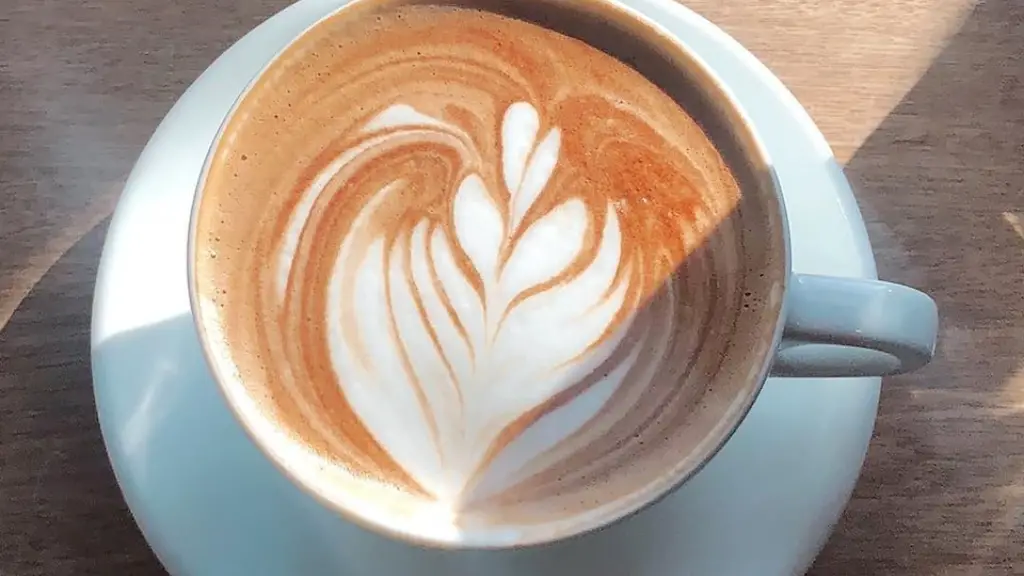Most of us have an amazing relationship with coffee. We’re not only devoted to our morning caffeine routine but many of us find that coffee provides us with an energy boost after lunch and dinner, too. Whether this act of consuming coffee after a meal is good or bad for us has been the subject of much debate. To answer this question let’s look at both sides of the argument.
Some believes that there are potential health benefits associated with drinking coffee following a meal. Caffeine is a stimulant and actually helps to raise metabolism which improves digestion. Drinking coffee after a meal may lead to enhanced absorption of essential nutrients such as iron. Coffee is also an excellent source of antioxidant polyphenols.
On the other hand many experts argue that drinking coffee after a meal is not such a good idea. Caffeine can adversely affect the absorption of some minerals such as calcium, zinc, and magnesium. Furthermore, it can also increase the acidity of the stomach and interfere with digestion. Some studies have even suggested that drinking coffee after a meal may cause cells to become more susceptible to damage by free radicals.
The bottom line is that coffee is a personal choice, and everyone’s body responds differently to it. Some people may find that coffee helps them feel energized after eating while others find it hinders their digestion. If you’re going to drink coffee after a meal, experts generally recommend limiting it to one or two cups a day. In addition, it’s always a good to have at least 30 minutes of a gap between your dinner and coffee.
How does coffee after a meal impact weight
One of the main concerns for many coffee drinkers is weight gain. Some studies have suggested that drinking coffee after a meal may have an indirect impact on weight loss or gain. For example, drinking coffee after a meal may lead to enhanced absorption of calories from the food. On the other hand, caffeine isn’t necessarily associated with weight gain and may even help to boost metabolism. Ultimately, the key to weight management is to watch your food intake and to exercise regularly.
A comparison of tea and coffee after meals
Many people enjoy sipping tea after a meal and may be wondering how this compares to drinking coffee. Generally speaking, both beverages offer a number of potential benefits as they are rich in antioxidants. Tea may also provide more antioxidants than coffee depending on the type of tea being consumed. In addition, drinking tea after a meal can help to reduce inflammation associated with digestion.
Tips for drinking coffee after a meal
If you’re going to drink coffee after a meal, here are a few things to remember. First, go for quality coffee and make sure to avoid any artificial additives, syrups, and flavorings. Also, limit your intake to one or two cups a day and opt for decaf if you can. Additionally, try to have at least 30 minutes of a gap between your dinner and coffee. Finally, if you find that coffee does make your stomach feel uncomfortable, then it’s probably best to avoid it altogether.
Alternatives to coffee after a meal
If you’re looking for an alternative to coffee, there are several beverages that you can choose from. Tea is a popular alternative and comes in many different varieties, each offering unique health benefits. Then there’s fruit juice, which is rich in antioxidants and vitamins, while coconut water is a great way to stay hydrated. Other options include herbal teas, sparkling water, and warm water with lemon.
Common questions about drinking coffee after a meal
When it comes to drinking coffee after a meal, many of us have a few questions. Does drinking coffee raise metabolism? The answer is yes, caffeine has been known to boost metabolism. Does it cause indigestion? In some cases, yes. Caffeine can increase the acidity of the stomach and interfere with digestion. Is drinking coffee after a meal bad for your teeth? Coffee can stain the teeth and it may lead to increased risk for cavities. However, this risk is generally associated with sugary coffee drinks.
Coffee consumed throughout the day
Finally, it’s important to note that some might drink coffee multiple times a day. If this is the case, it’s advised that you consume it in moderation. Additionally, it can be beneficial to control the amount of creamers, sweeteners and flavors you use, since these can contain additional calories. Also, don’t forget to include other beverages – such as water – in your daily routine.


